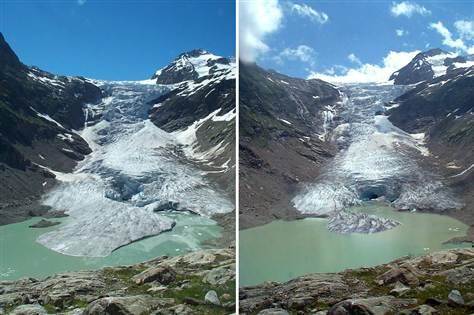
Dangers facing the world today
Today, at the start of the 21st century, human civilization and the biosphere face two existential threats: the danger of uncontrollable catastrophic climate change, and the danger of an all-destroying thermonuclear war. We must also be aware that population growth, climate change, and the end of the fossil fuel era may lead to a very large scale famine, possibly involving billions rather than millions of people. The consequences of these threatened disasters will be felt by all nations, if they occur, and all must cooperate if they are to be avoided.
What are India’s special responsibilities?
India is one of the nuclear weapon states that oppose the Treaty on the Prohibition of Nuclear Weapons, which was passed by the United Nations General Assembly on 7 July, 2017. Furthermore, India and Pakistan continue to contribute to the danger of nuclear war through continual aggressive threats and rhetoric. The two countries blame and threaten each other, but a nuclear war between them, if it should come, would affect all the nations of the world. All nuclear weapon states, including India and Pakistan, are in violation of Article VI of the Nuclear Nonproliferation Treaty, which requires them to set up a definite schedule for getting rid of their nuclear weapons.
Regarding the climate crisis, India has a special responsibility as the world’s 4th largest emitter of CO2, after China, the United States and the European Union. An MIT article on India’s plans for expanding the use of coal states that “such grown would swamp efforts elsewhere in the world to curtail carbon emissions, dooming any chance to head off the dire effects of global climate change.”
https://human-wrongs-watch.net/2015/11/30/paris-india-and-coal/
The threat of famine
India is especially vulnerable to the threat of famine, produced by a combination of population growth, climate change, and the end of the fossil fuel era. Glaciers in the Himalayas are melting rapidly, threatening India’s summer water supplies. Water tables are also falling, and are threatened by salination. Climate change may also disturb the regularity of India’s monsoons. Furthermore, the high-yield crops introduced by the Green Revolution require heavy energy inputs, which may be unavailable in the post-fossil-fuel era. Thus, government-supported birth control programs might be advisable.
John Scales Avery is a theoretical chemist at the University of Copenhagen. He is noted for his books and research publications in quantum chemistry, thermodynamics, evolution, and history of science. His 2003 book Information Theory and Evolution set forth the view that the phenomenon of life, including its origin, evolution, as well as human cultural evolution, has its background situated in the fields of thermodynamics, statistical mechanics, and information theory. Since 1990 he has been the Chairman of the Danish National Group of Pugwash Conferences on Science and World Affairs. Between 2004 and 2015 he also served as Chairman of the Danish Peace Academy. He founded the Journal of Bioenergetics and Biomembranes, and was for many years its Managing Editor. He also served as Technical Advisor to the World Health Organization, Regional Office for Europe (19881997).
http://www.fredsakademiet.dk/ordbog/aord/a220.htm. He can be reached at [email protected]. To know more about his works visit this link. http://eacpe.org/about-john-scales-avery/















































